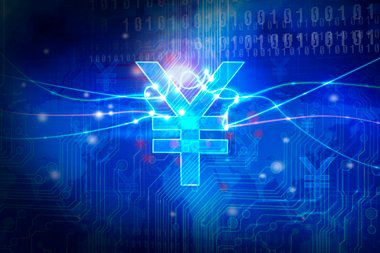
What Is a Private Currency?
Private currencies are units of value issued by a private organization (such as a corporation or nonprofit enterprise) to act as an alternative to a national or fiat currency, which would otherwise be the standard unit of value in a country. As a result, these currencies are not legal tender.
Key Takeaways
- Private currency is a means of value and exchange issued and maintained by a private entity such as a corporation, often for the benefit of members of that entity.
- Company towns were once a common locale for private currency issued as scrip by the employer to be used to purchase necessities and other goods from company stores.
- Private currencies are not legal tender and may be illegal in some jurisdictions; however, the advent of cryptocurrencies may spark a renaissance in digital private currencies.
Understanding Private Currencies
Company scrip was a common form of private currency issued to employees by their employer, which could only be exchanged in company stores owned by the employer. This was more common in the 19th century in the U.S. and Europe as the industrial revolution created mining towns far away from other forms of economic activity.
Private currencies have been used in the United States since the mid-1800s and are still used today in some localities. Although issuing private currency is restricted by law in many countries, there are still estimated to be thousands of private currencies circulating in dozens of countries worldwide.
Many private currencies struggle to survive for more than a few years due to being relatively illiquid, narrowing the range of choice for businesses and consumers, suffering from a trust deficit, and the complications of having to deal with two parallel or complementary currencies.
As a result, private currencies are often issued and backed by physical commodities, such as gold or silver. When backing a private currency with a commodity, issuers can increase the security and viability of the asset. This practice also limits the effects of inflation on the currency’s value since commodities tend to move closely in line with inflation.
Special Considerations
A cryptocurrency is a decentralized digital currency that uses cryptography to safeguard user information in transactions and control the creation of additional currency units. Bitcoin issued its first token in 2009 and quickly became the best-known and largest cryptocurrency in terms of total market value. Although investing in digital currencies can be extremely risky and volatile, their use has skyrocketed.
Digital currencies still must overcome many significant technological and legal obstacles, but they are widely predicted to become more than a fad. Some economists and other experts believe that cryptocurrencies could eventually become a part of the mainstream financial system that could involve the trading of digital assets and potentially even replace some national currencies.
El Salvador became the first country in the world (in June 2021) to accept bitcoin as a legal tender.
Because blockchain-based cryptocurrencies are open-source, virtually anybody with basic programming skills and an understanding of the technical infrastructure can create and market their own private digital currency.
Private vs. Local Currency
While similar, local currencies differ from private currencies in that they are not issued by a private organization for internal use but by a community or local government to stimulate local economic activity.
For example, the Ithaca HOUR was a printed currency exchanged in Ithaca, New York, between 1991 and 2011. It allowed participating workers to earn or purchase HOURS to buy goods and services locally, but it is no longer circulating.
Launched in 2006 in the Berkshires region of Massachusetts, a local currency called BerkShares is similarly issued from branch offices in the community. It is accepted at hundreds of businesses in Berkshire County, MA.
Is Bitcoin a Private Currency?
Bitcoin is possibly the least private of the popular cryptocurrencies. Bitcoin transactions are recorded and linked through a public blockchain ledger. Amounts of transactions and their corresponding alphanumeric IDs get recorded. Wallet addresses may keep you anonymous, but not if someone discovers your wallet address and can link it to your known identity.
Is the U.S. Dollar Private Currency?
The U.S. dollar is issued by the government and controlled by a central bank, so it is not a private currency.
Is It Illegal to Create a Currency?
It is illegal to create coins or currencies with the intent to compete with the official currency of the United States. Article 1, Section 8, clause 5 of the U.S. Constitution prohibits states and, by proxy, local governments from creating and issuing their own currencies. Scrip, or vouchers and barter systems, can be created and used between agreeing parties, but there can be no attempts to circulate private currencies.


